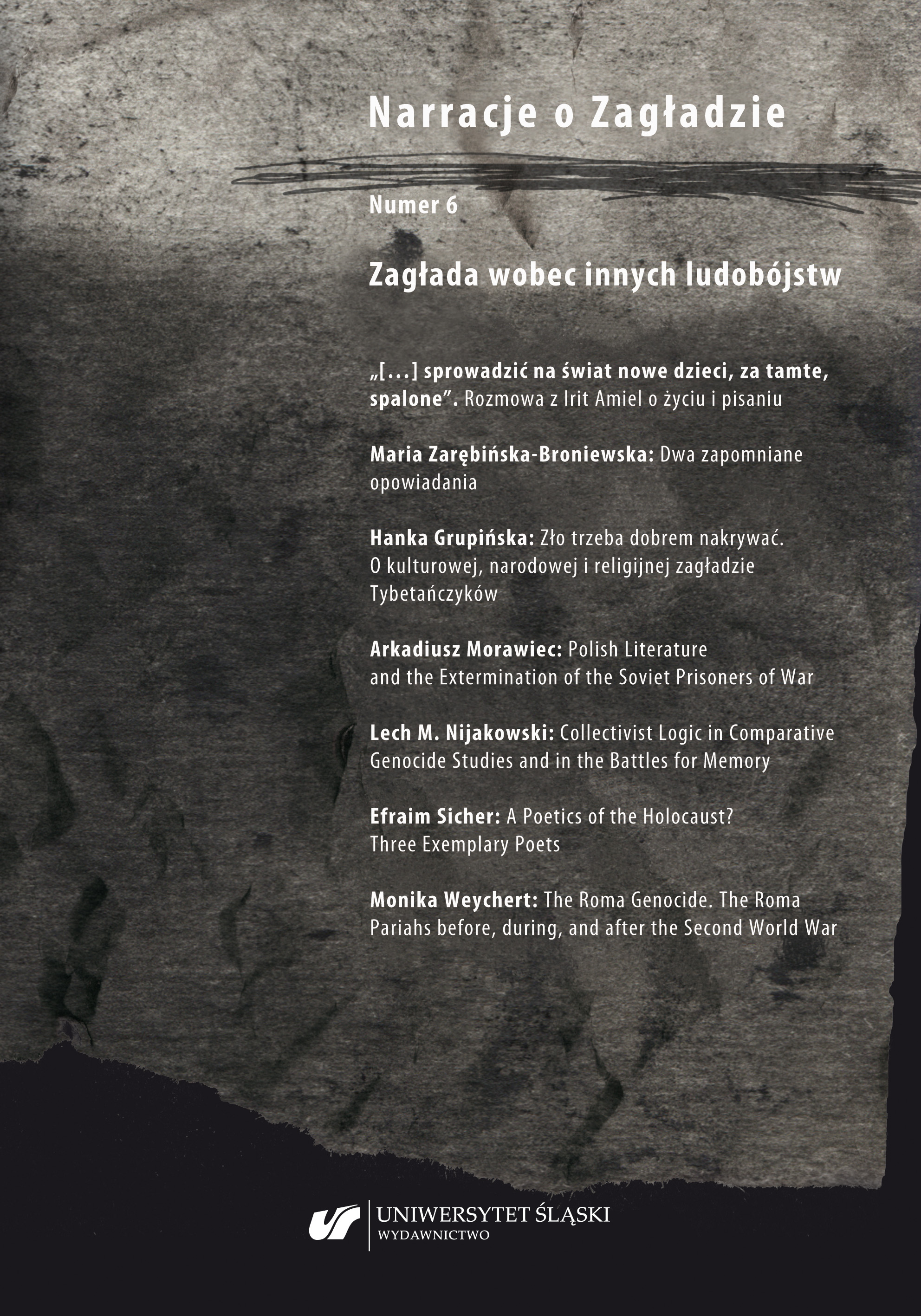Holokaust jako ludobójstwo wyjątkowe
The Holocaust as an Unique Genocide
Author(s): Jacek SurzynSubject(s): Jewish studies, Polish Literature, History of the Holocaust
Published by: Wydawnictwo Uniwersytetu Śląskiego
Keywords: Holocaust; genocide; Jews; extermination; modernity
Summary/Abstract: The article is dedicated to an analysis of the Holocaust uniqueness against the backdrop of other genocides. Most of all, the text follows the clues from Berel Lang, who interprets the Nazi Crime as a perfect genocide, that is, such a genocide that implemented its ideological assumptions fully for the first time in human history. What transpired then was in fact a comprehensive synthesis of “idea” and “actions.” Therefore, the relation between the Holocaust and other genocides turns out to be one-sided: the Holocaust is a genocide but no other genocide is the Holocaust. The category of genocide was, first of all, introduced into international circulation by a Polish lawyer of Jewish origin Rafał Lemkin during the final decade before the outbreak of World War Two. Genocide has become an almost universally acknowledged term, reinforced by the UN declaration of 1947. Mass crimes occurred in human history since the time immemorial. However, their character fundamentally changed with the advent of modernity, when powerful nation states within the framework of ideological postulates managed to give a new dimension to their politics, the one including actions meted out against entire communities: ethnic groups or nations. The Nazi crime of the Holocaust seems to be a unique exemplification of “modernity” (the term introduced in this sense by Zygmunt Bauman), that is, the combination of technicalisation and mass production with strong bureaucratic structure, which resulted in an unimaginable deed of murdering millions of Jews while utilising technical methods. The killing took a form of “production tasks,” which made the moral problems of responsibility and guilt appear in a different light. In the article an attempt is made to show implications stemming from the acceptance of the Holocaust’s uniqueness as “a perfect genocide,” both in its political and social as well as philosophical and moral dimensions.
Journal: Narracje o Zagładzie
- Issue Year: 2020
- Issue No: 6
- Page Range: 61-79
- Page Count: 19
- Language: Polish

